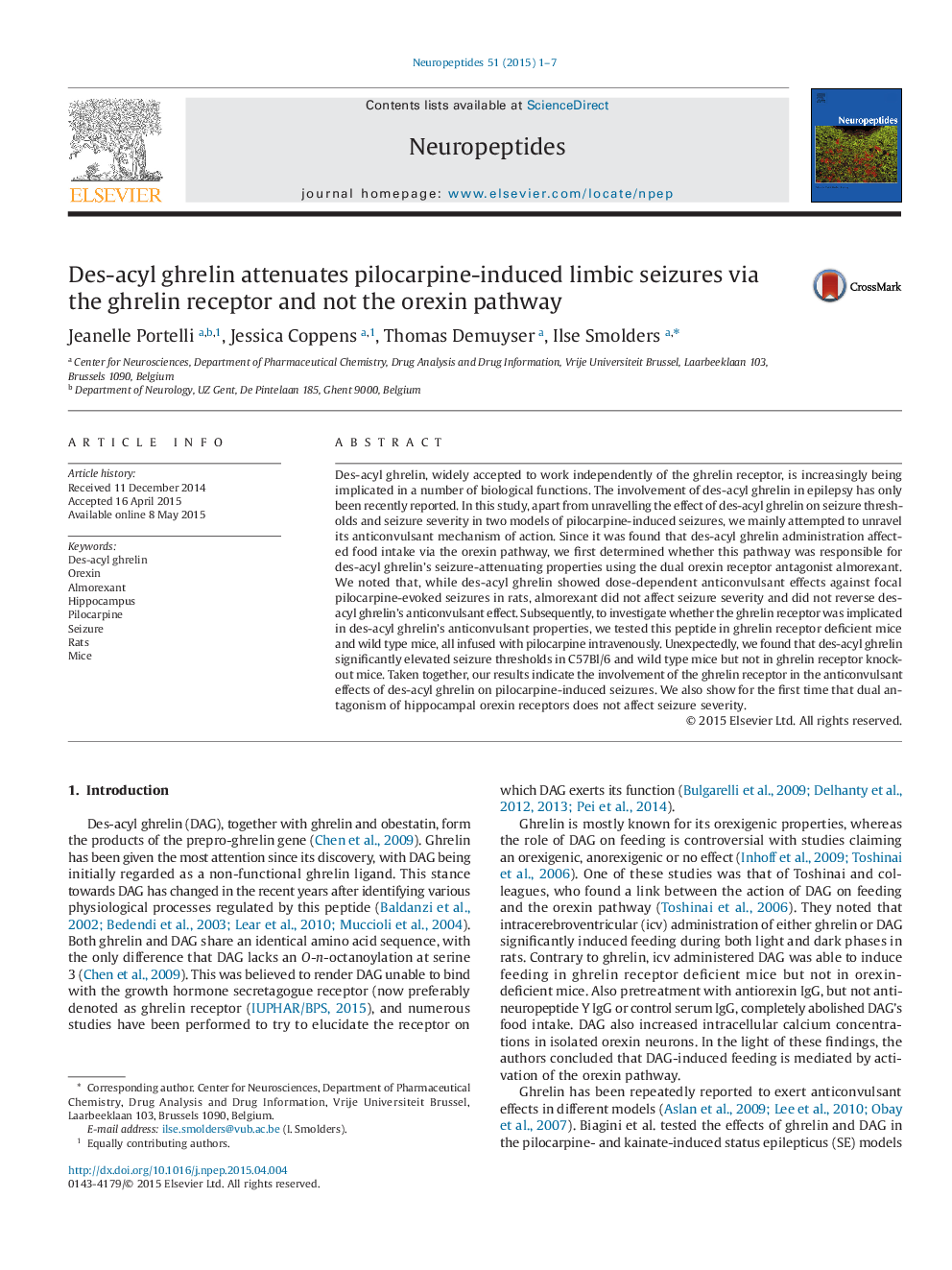| Article ID | Journal | Published Year | Pages | File Type |
|---|---|---|---|---|
| 2807954 | Neuropeptides | 2015 | 7 Pages |
•Des-acyl ghrelin attenuates pilocarpine-induced limbic seizures in two models.•The orexin pathway is not involved in des-acyl ghrelin's effects on seizures.•The dual orexin receptor antagonist does not affect limbic seizures.•Des-acyl ghrelin appears to require the ghrelin receptor for seizure attenuation.
Des-acyl ghrelin, widely accepted to work independently of the ghrelin receptor, is increasingly being implicated in a number of biological functions. The involvement of des-acyl ghrelin in epilepsy has only been recently reported. In this study, apart from unravelling the effect of des-acyl ghrelin on seizure thresholds and seizure severity in two models of pilocarpine-induced seizures, we mainly attempted to unravel its anticonvulsant mechanism of action. Since it was found that des-acyl ghrelin administration affected food intake via the orexin pathway, we first determined whether this pathway was responsible for des-acyl ghrelin's seizure-attenuating properties using the dual orexin receptor antagonist almorexant. We noted that, while des-acyl ghrelin showed dose-dependent anticonvulsant effects against focal pilocarpine-evoked seizures in rats, almorexant did not affect seizure severity and did not reverse des-acyl ghrelin's anticonvulsant effect. Subsequently, to investigate whether the ghrelin receptor was implicated in des-acyl ghrelin's anticonvulsant properties, we tested this peptide in ghrelin receptor deficient mice and wild type mice, all infused with pilocarpine intravenously. Unexpectedly, we found that des-acyl ghrelin significantly elevated seizure thresholds in C57Bl/6 and wild type mice but not in ghrelin receptor knock-out mice. Taken together, our results indicate the involvement of the ghrelin receptor in the anticonvulsant effects of des-acyl ghrelin on pilocarpine-induced seizures. We also show for the first time that dual antagonism of hippocampal orexin receptors does not affect seizure severity.
